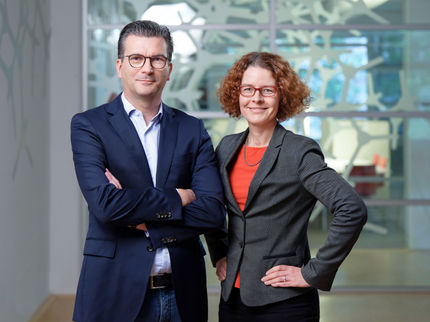Transgressing planetary boundaries: A crisis wake-up call for chemistry
An international group of scientists propose how chemistry can limit excessive biogeochemical flows and achieve sustainability
Advertisement
A paper just published in the journal Chemical Science calls for urgent attention to the crucial role that chemistry must play in tackling the multiple crises that are now unfolding due to the transgression of planetary boundaries. Nine boundaries, first proposed in 2009, define safe operating spaces within which humanity can continue to develop and thrive for generations to come. Several of the boundaries have been quantified in terms of the concentrations of chemicals released into the environment. Prof. Henning Hopf of Technische Universität Braunschweig together with Prof. Stephen Matlin, Visiting Professor in the Institute of Global Health Innovation at Imperial College London, and an international group of scientists propose three crucial steps for chemists to respond to the worldwide crises.

Symbolic image
Jonas Vogel, Kristina Rottig/TU Braunschweig
The Planetary boundaries are concerned with climate change (driven by greenhouse gases including carbon dioxide and methane); change in biosphere integrity (biodiversity loss and extinctions); stratospheric ozone depletion; ocean acidification; nitrogen and phosphorus flows to the biosphere and oceans (biogeochemical flows); land-system change; freshwater consumption and the global hydrological cycle; atmospheric aerosol loading (particulate matter in the air, partly originating from burning fossil fuels and biomass); and release of novel entities.
Chemistry’s extraordinary success as the science of transformation of matter, bringing huge benefits to the health, wealth and wellbeing of humanity, has been central to the expanding quantity and diversity of artefacts generated by human beings. The production of anthropogenic mass (global total dry mass of material contained in inanimate solid objects made by humanity) doubled every 20 years since 1900, in 2020 reaching 30 billion tonnes per year and totalling c. 1.1 trillion tonnes present on the planet. This accumulated amount equalled the dry weight of total biomass on Earth for the first time and, on current trends, total anthropogenic mass will be triple the dry weight of biomass by 2040. Concomitantly, the global chemical industry’s production capacity (excluding pharmaceuticals) almost doubled between 2000 and 2017, from about 1.2 to 2.3 billion tonnes.
Recent assessments alarmingly indicate that many of the world’s leading chemicals are transgressing one or more of the nine Planetary Boundaries. In the case of novel entities, for which no Planetary Boundary control variable has yet been agreed internationally, it has been proposed that a measure of the production and release of plastics is one possible parameter – and this boundary has also already been transgressed.
The deepening and accelerating crises cannot be ignored and there is a once-in-a-century opportunity for chemistry to make a critical difference to the future of people and planet. The international group of authors of the paper in Chemical Science propose three crucial steps for chemists to respond to the wake-up call: (1) urgently working to understand the nature of the looming threats, from a chemistry perspective; (2) harnessing the ingenuity and innovation that are central to the practice of chemistry to develop sustainable solutions; and (3) transforming chemistry itself, in education, research and industry, to re-position it as ‘chemistry for sustainability’ and lead the stewardship of the world’s chemical resources. This will require conservation of material stocks in forms that remain available for use, through attention to circularity, as well as strengthening engagement in systems-based approaches to designing chemistry research and processes informed by convergent working with many other disciplines. The paper has been designated ‘pick-of-the-week’ by Chemical Science, which is the flagship journal of the UK’s Royal Society of Chemistry.
The authors of the paper, “Chemistry must respond to the crisis of transgression of planetary boundaries”, are scientists affiliated with the Chemists for Sustainability group of the International Organization for Chemical Sciences in Development (IOCD). This organization is a not-for-profit international non-governmental organization founded in 1981 and registered in Namur, Belgium. IOCD promotes the pursuit and application of the chemical sciences for sustainable development and economic growth and its current priority focus is on the role of the chemical sciences in global sustainability. The IOCD group Chemists for Sustainability (C4S) is an international group of chemists who believe that chemistry and related sciences have indispensable roles to play in helping the world to achieve the UN Sustainable Development Goals. The group has served advocacy and think-tank roles through written articles, lectures at various fora and web materials.

































































